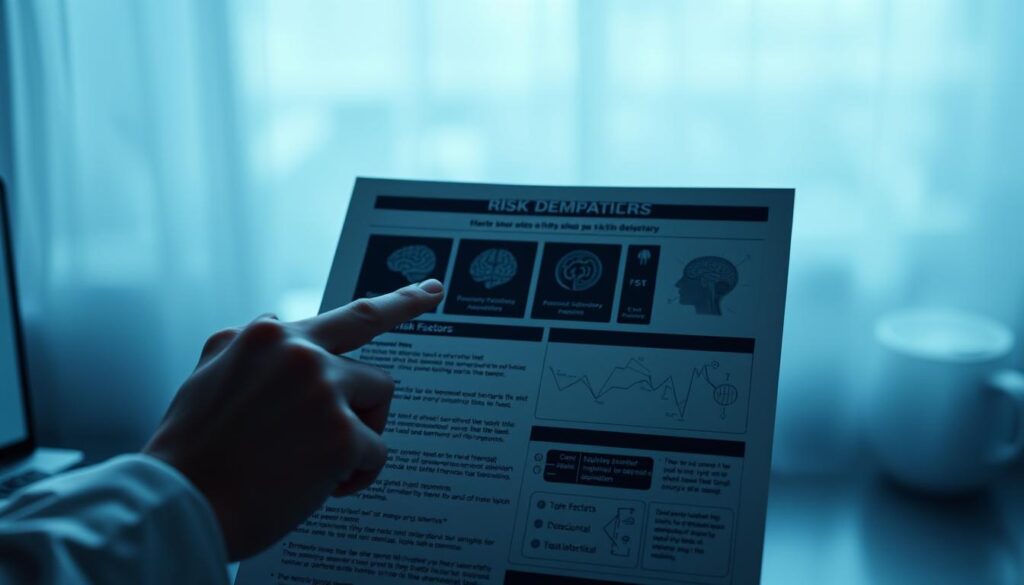- April 18, 2025
Welcome to Dementia World elderly home services



As the world’s population gets older, worries about losing mental sharpness and dementia grow. Many wonder if people with autism are more likely to face these issues as they get older.
New studies have caught attention about a possible link between autism and a higher chance of getting dementia. It’s important to understand this connection. This knowledge helps us give better care and support to autistic people as they age.
Research is showing that autistic adults might face special challenges that could affect their brain health as they get older. It’s key to keep studying this link. This helps us develop better care and support strategies for them.
Research shows that people with autism might face a higher risk of getting dementia as they age. This link has led to more studies to figure out why and how to prevent it.
As more people live longer, scientists are studying how autism affects aging. They’ve found that autistic adults are more likely to get Alzheimer’s disease and other dementias. This has made researchers curious about how autistic people age.

The aging process for autistic individuals is complex. Factors like genetics play a role in their increased dementia risk. Studies show that autistic adults are more likely to get Alzheimer’s or other dementias than non-autistic people. They also experience memory loss faster.
Studies suggest that autistic people face a higher risk of dementia. Researchers are looking into genetic factors, like the APOE4 gene, to understand this risk. They are also studying the brain changes that might link autism to dementia.
Studying autism in older adults is tough. It’s hard to diagnose autism and dementia in the same person. Researchers face these challenges to better understand the autism-dementia link.
Diagnosing dementia in autistic individuals is complex. Symptoms can be similar to other conditions. This makes it important to develop specific diagnostic methods and dementia care plans.
It’s important to know what increases the risk of dementia in autistic people. This knowledge helps us find better ways to prevent and treat it. Studies show that autistic individuals might face a higher risk of dementia due to several factors.
One major risk factor is certain neurobiological mechanisms. For example, the APOE4 gene can raise the risk of Alzheimer’s disease, a common dementia cause. Research indicates that autistic people are more likely to have this gene, which could increase their risk.
Key neurobiological factors include:

Cognitive processing differences in autistic individuals also play a role. These differences might affect how they process and remember information. This could lead to cognitive decline.
Social determinants of health are also critical. These include access to healthcare and lifestyle factors that greatly impact health and dementia risk.
Autistic individuals often struggle to get the healthcare they need. This struggle can harm their health and increase dementia risk. It’s essential to ensure equal access to healthcare, including dementia treatment and support.
Lifestyle choices like physical activity, social interaction, and mental stimulation are key. Encouraging healthy habits and providing dementia support can help lower dementia risks.
By tackling these risk factors, we can reduce dementia risk in autistic individuals. This will improve their quality of life.
Understanding the link between autism and dementia is key. It helps us create better care and support for autistic people. Studies show autistic people might face a higher risk of dementia. This highlights the need for special care and ways to prevent dementia.
Healthcare experts can use this knowledge to make dementia resources for autistic people. They can focus on early intervention and prevention. This might include cognitive training and social support services.
More research is needed to improve care for aging autistic individuals. By working together, we can enhance their quality of life. This can also lower the risk of dementia.